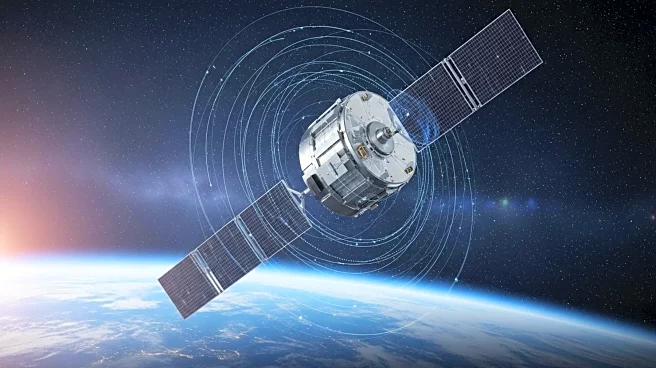What's Happening?
A team of researchers from UC San Diego and the University of Maryland has revealed significant security vulnerabilities in satellite communications. Using basic equipment, they intercepted unencrypted
data from various sources, including T-Mobile's cellular network, in-flight Wi-Fi, and utility infrastructure communications. Alarmingly, military and law enforcement communications were also accessible, exposing sensitive information such as personnel locations and equipment details. The study highlights the widespread issue of unencrypted satellite data, with researchers able to intercept communications from approximately 15% of operational satellites. Despite the ease of access, the researchers did not actively intercept communications but passively listened to the signals received.
Why It's Important?
The findings underscore a critical security gap in satellite communications, which could have severe implications for national security and privacy. The ability to intercept sensitive data with minimal equipment raises concerns about potential exploitation by malicious entities. This vulnerability could impact various sectors, including telecommunications, military operations, and infrastructure management. The study may prompt satellite communication providers to enhance encryption protocols, safeguarding against unauthorized access and protecting sensitive information.
What's Next?
Following the study, affected companies and agencies have been notified, with some already implementing encryption measures. However, many entities continue to broadcast unencrypted data, indicating a need for broader industry action. The research may drive regulatory changes and encourage providers to adopt stricter security standards. Stakeholders, including government agencies and private companies, are likely to reassess their communication security strategies to prevent future breaches.
Beyond the Headlines
The study raises ethical questions about data privacy and the responsibility of communication providers to protect user information. It also highlights the potential for intelligence agencies to exploit unencrypted data, emphasizing the need for international cooperation in securing satellite communications. Long-term, this could lead to advancements in encryption technology and a shift towards more secure communication infrastructures.









